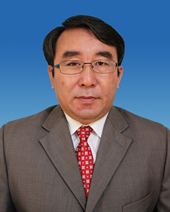
In order to deepen the communication in all the participants, ICCBB 2023 have invited professors from local Bali and all over the world to have speeches about Computational Biology and Bioinformatics and related fields.

Prof. Wing-Kin Sung
National University of Singapore, Singapore
Prof. Dr. Wing-Kin Sung received both the B.Sc. and the Ph.D. degree in the Department of Computer Science from the University of Hong Kong in 1993, 1998, respectively. He is a professor in the Department of Computer Science, School of Computing, NUS. Also, he is a senior group leader in Genome Institute of Singapore. He has over 20 years experience in Algorithm and Bioinformatics research. He also teaches courses on bioinformatics for both undergraduate and postgraduate. He was conferred the 2003 FIT paper award (Japan), the 2006 National Science Award (Singapore), and the 2008 Young Researcher Award (NUS) for his research contribution in algorithm and bioinformatics.
Speech Title: "Repeat-aware Structural Variation Calling and its Application in Arabidopsis"
Abstract: Structural variations (SVs) greatly impact the observable phenotypes in different organisms including plants and human. Hence, extracting SVs with high precision and sensitivity is important. Advance in next generation sequencing technologies enables us to call SVs by aligning short reads on the reference genome. However, most of the SVs are located close to repeat regions. The alignment of short reads in those regions is inaccurate. Hence, the accuracy of SV calling is low. Existing methods miss more than 50% of SVs. In this presentation, we will describe our strategies to correct the alignments of short reads, which allow us to improve the SV calling accuracy. We also will describe the applications of our methods to understand the variation map of Arabidopsis.

Prof. Zhongming Zhao (Felow of ACMI, AMIA and AIMBE)
The University of Texas Health Science Center at Houston, USA
Dr. Zhongming Zhao holds Chair Professor for Precision Health and is the founding director of the Center for Precision Health, the University of Texas Health Science Center at Houston (UTHealth). Before he joined UTHealth in 2016, he was Ingram Endowed Professor of Cancer Research, Professor in the Departments of Biomedical Informatics, Psychiatry, and Cancer Biology at Vanderbilt University Medical Center, Chief Bioinformatics Officer of the Vanderbilt-Ingram Cancer Center (VICC), among other leadership roles. Dr. Zhao has broad interests in bioinformatics, genomics, computational biology, and precision medicine, and he has co-authored over 450 total publications in these areas (H-index = 75). Dr. Zhao is an elected fellow of the American College of Medical Informatics (ACMI), the American Medical Informatics Association (FAMIA), the American Institute for Medical and Biological Engineering (AIMBE).
Speech Title: "Deep Learning Approaches for Predicting Virus-Host Interactions and Drug Response"
Abstract: Virus infection is commonly observed in nature. Recently, SARS-CoV-2 has caused a global pandemic. An effective and efficient detection of viruses in the host organisms, and tracking how they interact with the host genomes, are currently a main challenge. In this talk, I will first introduce our computational approaches to detect viruses and their integration sites in the host genomes from next generation sequencing data. Then, based on our recently developed virus integration site database (VISDB), we developed a deep learning method, DeepVISP, for virus site integration prediction and motif discovery. We further expanded the computational approach, namely DeepHTLV, to predict the virus-host interaction sites of human T cell leukemia virus type 1 (HTLV-1), the first human retrovirus associated with disease to be identified in the early 1980s. Finally, I will briefly present our computational approaches for drug response from large-scale omics data.

Prof. Xiyin Wang
North China University of Science and Technology, China
Xiyin Wang received the PhD in Bioinformatics, Beijing University, 2005. He is Professor and Dean at the School of Life Science (2010-2019) and School of Science (2019) in the North China University of Science and Technology, China. His major achievements are in Chromosome evolution and reduction theory, the origin of B chromosomes, plant genome structure and evolution, plant polyploidy, and proposition of gold standard to decipher complex plant genomes. Developing bioinformatics software WGDI, ColinearScan, and MCScan, and databases PGDD, GGDB, etc. He was elected as the top scientists in Biology and biochemistry.
Speech Title: "How Polyploidy Contributed to the Evolution of Seed Plants?"
Abstract: Recursive polyploidization has affected the origination, diversification, and evolution of plants. Complex nature of plant genomes often led to insufficient analysis of their sequences. An updated analysis of seed plant genomes revealed solid evidence of shared common polyploid ancestors, and thereafter angiosperms and gymnosperms were unbalancedly affected by polyploidization, significantly related to divergent plant forms. Deciphering whether a specific polyploidization event was shared by different plant groups or not proves a credible method to solve debated phylogenetic relationship among early plant lineages. Deconvoluting the complex nature of plant genomes also shed light on the formation and evolution of ancestral cell karyotypes and chromosomes, and the reconstruction of evolutionary trajectories of chromosomes from the common ancestor of seed (and flowering) plants contributed to the enrichment of chromosome biology.